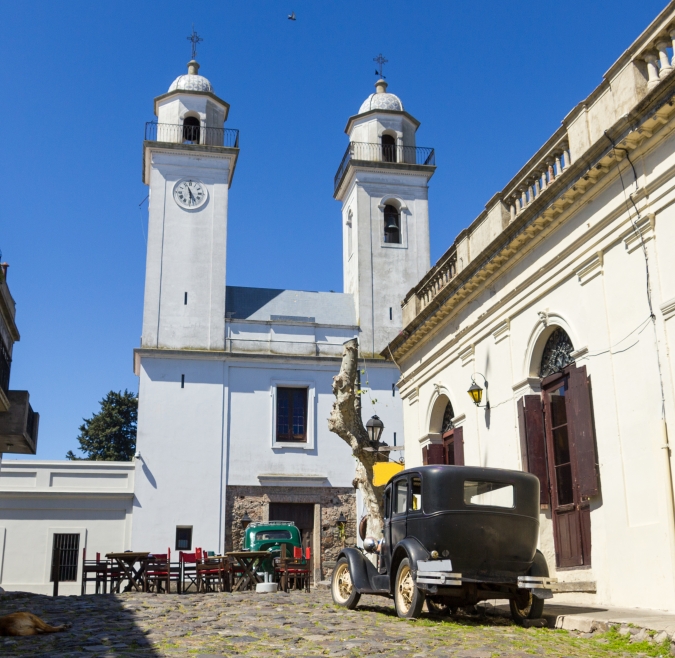Embedded Spring: Rutgers-Cultural landscapes of Argentina and Uruguay
The Program
In this Spring-embedded course, we visit and interact with heritage places in Argentina and Uruguay to identify, appreciate, and discuss the complexities of cultural landscapes across both sides of the Rio de la Plata: Buenos Aires (Argentina) and Montevideo (Uruguay), as well as their vicinities.

Program Locations

Argentina
Buenos Aires
Buenos Aires (Argentina) and Montevideo (Uruguay) are bustling capital cities in South America where multiculturalism meets natural and man-made environments to create unique cultural experiences. Connected by a ferry across the Rio de la Plata (defined as some as the widest river in the world at 140 mi), these former sister-colonies of Spain show similarities and differences in the management of their cultural and natural heritage resources.

Uruguay
Colonia
Colonia do Sacramento is a city in southwestern Uruguay, by the Río de la Plata, facing Buenos Aires, Argentina. It is one of the oldest towns in Uruguay and the capital of the Colonia Department.
The Barrio Histórico (historic quarter) section of Colonia del Sacramento is designated a World Heritage Site by UNESCO. It has some cobblestone streets built by the Portuguese in the 17th century, and is within walking distance of the town's ferry terminal.
Academics
This international experience is ideal for students interested in global and transnational issues, global culture, Latin American cultures and landscapes, and, naturally, cultural heritage and preservation methods from a global comparative perspective.
This course combines traditional classroom lectures and discussion that foster a rich understanding of crucial concepts, and a Study Abroad experience that allows students to test and perfect these concepts in various contexts through experiential learning. This course and its accompanying on-campus seminar will count towards all the Cultural Heritage and Preservation Studies (CHAPS) degree programs and other allied programs that accept CHAPS courses as electives.
Housing and Meals
Students will share twin or triple hotel rooms (breakfast included), in walking-friendly areas at the center of each city. Students are responsible for their lunch. Dinners are included.
Students will share double rooms in a hotel in Buenos Aires for 4 nights, and in Montevideo for 3 nights.
Financial Information
Program Costs
| All Students | |
|---|---|
| Program Cost | $1,920 |
Program Cost includes:
- Housing
- Breakfast and dinner
- Excursions
- Administrative Fees
- Emergency Medical Access Abroad
Out-of-Pocket Costs
| Airfare | $1,500 |
| Meals | $300 |
| Personal Expenses | $100 |
| Total | $1,900.00 |
Out-of-Pocket Cost includes:
The above costs are estimations and represent the known out-of-pocket costs students encounter during their time abroad.
Some of these expenses will be paid for prior to going abroad, such as an airline ticket, while some of these expenses, such as meals and personal expenses, will be paid in-country as part of your daily expenses. As you plan, you will need to budget these costs and spend wisely throughout your time abroad.

